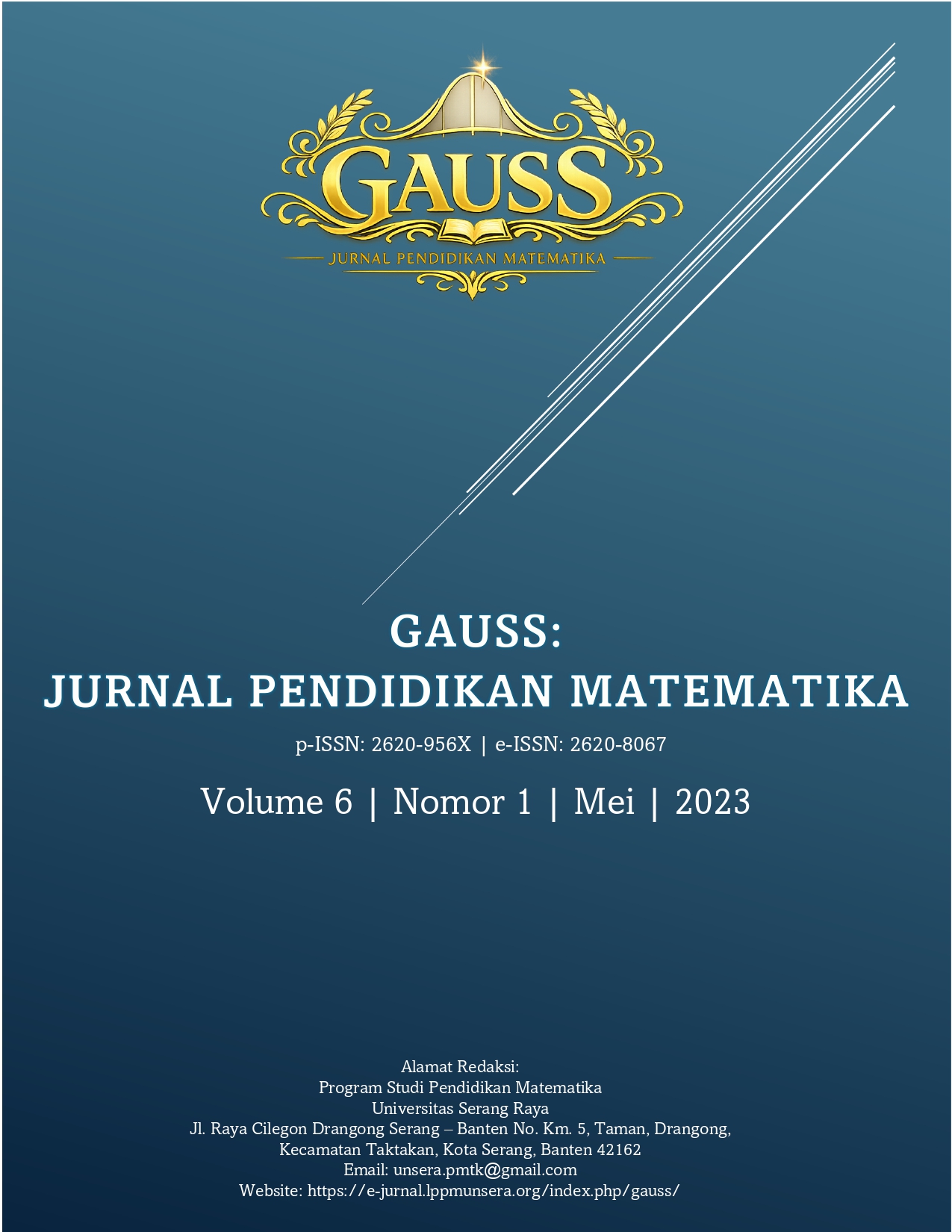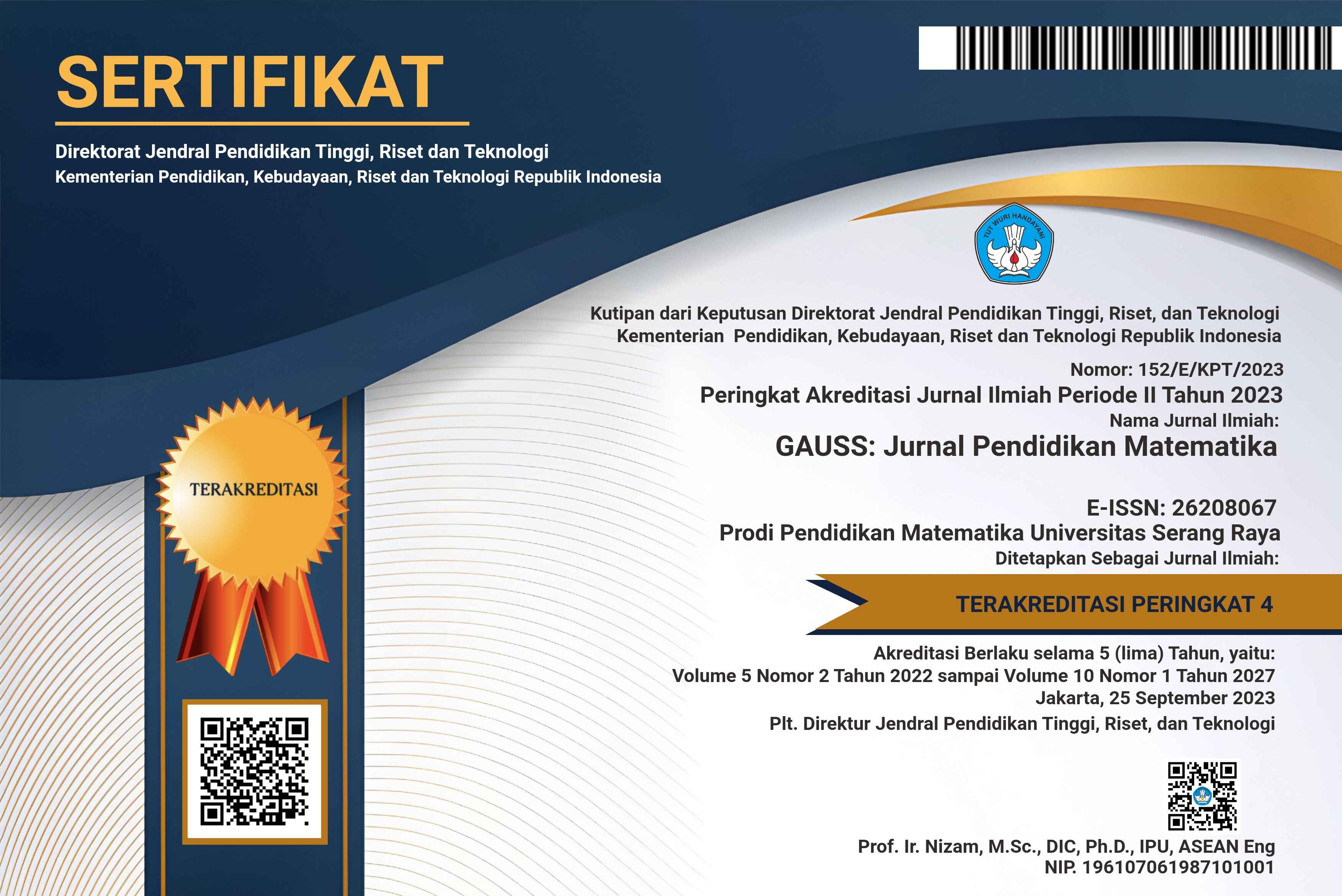Pengaruh Model Pembelajaran Flipped Classroom terhadap Penalaran Matematis Siswa Kelas VII SMP Negeri 8 Purworejo
DOI:
https://doi.org/10.30656/gauss.v6i1.5494Abstrak
Penelitian ini mempunyai tujuan memahami apakah model belajar flipped classroom berpengaruh atas penalaran matematis pelajar.Jenis penelitian ini ialah penelitian kuantitatif memakai pendekatan eksperimen. Penelitian dilakukan pada SMP N 8 Purworejo. Populasi penelitian yaitu pelajar kelas VII TA 2021/2022. Metode penarikan sample memakai Cluster Random Sampling yang menghasilkan kelas VII F (kelas eksperimen) serta kelas VII E (kelas kontrol). Perlakuan yang dipakai dalam penelitian ini ialah gaya kegiatan belajar mengajar flipped classroom dan model pembelajaran tradisional. Metode penghimpunan data yang dipakai ialah tes serta dokumentasi. Instrumen yang peneliti pakai yaitu test uraian mencakup pertanyaan penalaran matematis. Metode analisis data uji hipotesis memakai uji-t dengan α = 0,05. Hasil analisis data uji hipotesis didapat nilai thitung = 2,5910 dengan taraf signifikansi (α = 0,05) dan ttabel = 1,9989. Nilai thitung> ttabel sehingga H0 ditolak serta H1 diterima, maka ditarik kesimpulan ada pengaruh model kegiatan belajar mengajar flipped classroom terhadap penalaran matematis pelajar kelas VII SMP Negeri 8 Purworejo. Siswa yang diberikangaya kegiatan belajar mengajar flipped classroom mempunyai kemahiran penalaran matematis yang bagus dibandingkan pelajar diberikan model kegiatan belajar mengajar tradisional.
Kata kunci: flipped classroom, model pembelajaran, dan penalaran matematis.
Unduhan
Diterbitkan
Terbitan
Bagian
Lisensi
Authors who publish articles in GAUSS : JURNAL PENDIDIKAN MATEMATIKA agree to the following terms:
- Authors retain copyright and grant the journal the right of first publication with the work simultaneously licensed under a Creative Commons Attribution-ShareAlike 4.0 International License that allows others to share the work with an acknowledgment of the work's authorship and initial publication in this journal.
- Authors are able to enter into separate, additional contractual arrangements for the non-exclusive distribution of the journal's published version of the work (e.g., post it to an institutional repository or publish it in a book), with an acknowledgment of its initial publication in this journal.
- Authors are permitted and encouraged to post their work online (e.g., in institutional repositories or on their website) before and during the submission process, as it can lead to productive exchanges, as well as earlier and greater citation of published work (See The Effect of Open Access).




